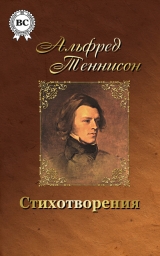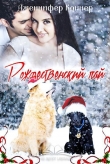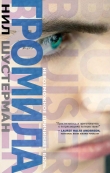Волшебница Шалотт и другие стихотворения

Текст книги "Волшебница Шалотт и другие стихотворения"
Автор книги: Альфред Теннисон
Жанр:
Поэзия
сообщить о нарушении
Текущая страница: 3 (всего у книги 14 страниц) [доступный отрывок для чтения: 6 страниц]
I
THE POET’S SONG
The rain had fallen, the Poet arose,
He pass’d by the town and out of the street,
A light wind blew from the gates of the sun,
And waves of shadow went over the wheat,
And he sat him down in a lonely place,
And chanted a melody loud and sweet,
That made the wild-swan pause in her cloud,
And the lark drop down at his feet.
The swallow stopt as he hunted the fly,
The snake slipt under a spray,
The wild hawk stood with the down on his beak,
And stared, with his foot on the prey,
And the nightingale thought, ‘I have sung many songs,
But never a one so gay,
For he sings of what the world will be
When the years have died away.’
ПЕСНЯ ПОЭТА
Ливень схлынул, и вышел Поэт за порог,
Миновал дома, городской предел,
Ветерок подул от закатных туч,
Над волнами ржи, как дрожь, пролетел.
А Поэт нашел одинокий холм
И так звонко, так сладко песню запел —
Дикий лебедь заслушался в небесах,
Наземь жаворонок слетел.
Стриж забыл на лету догонять пчелу,
Змейка юркнула в свой приют,
Ястреб с пухом жертвы в клюве застыл,
Он скорей растерян, чем лют;
Соловей подумал: «Мне так не спеть,
На земле так, увы, не поют —
Он поет о том, каким будет мир,
Когда годы и время пройдут».
Г. Кружков
MARIANA
‘Mariana in the moated grange’ —
Measure for Measure
With blackest moss the flower-plots
Were thickly crusted, one and all:
The rusted nails fell from the knots
That held the pear to the gable-wall.
The broken sheds look’d sad and strange:
Unlifted was the clinking latch;
Weeded and worn the ancient thatch
Upon the lonely moated grange.
She only said, ‘My life is dreary,
He cometh not,’ she said;
She said, ‘I am aweary, aweary,
I would that I were dead!’
Her tears fell with the dews at even;
Her tears fell ere the dews were dried;
She could not look on the sweet heaven.
Either at morn or eventide.
After the flitting of the bats,
When thickest dark did trance the sky,
She drew her casement-curtain by,
And glanced athwart the glooming flats.
She only said, ‘The night is dreary,
He cometh not,’ she said;
She said, ‘I am aweary, aweary,
I would that I were dead!’
Upon the middle of the night,
Waking she heard the night-fowl crow:
The cock sung out an hour ere light:
From the dark fen the oxen’s low
Came to her: without hope of change,
In sleep she seem’d to walk forlorn,
Till cold winds woke the grey-eyed morn
About the lonely moated grange.
She only said, ‘The day is dreary,
He cometh not,’ she said;
She said, ‘I am aweary, aweary,
I would that I were dead!’
About a stone-cast from the wall
A sluice with blacken’d waters slept,
And o’er it many, round and small,
The cluster’d marish-mosses crept.
Hard by a poplar shook alway,
All silver-green with gnarled bark:
For leagues no other tree did mark
The level waste, the rounding gray.
She only said, ‘My life is dreary,
He cometh not,’ she said;
She said, ‘I am aweary, aweary,
I would that I were dead!’
And ever when the moon was low,
And the shrill winds were up and away,
In the white curtain, to and fro,
She saw the gusty shadow sway.
But when the moon was very low,
And wild winds bound within their cell,
The shadow of the poplar fell
Upon her bed, across her brow.
She only said, ‘The night is dreary,
He cometh not,’ she said;
She said, ‘I am aweary, aweary,
I would that I were dead!’
All day within the dreamy house,
The doors upon their hinges creak’d;
The blue fly sung in the pane; the mouse
Behind the mouldering wainscot shriek’d,
Or from the crevice peer’d about.
Old faces glimmer’d thro’ the doors,
Old footsteps trod the upper floors,
Old voices called her from without.
She only said, ‘My life is dreary,
He cometh not,’ she said;
She said, ‘I am aweary, aweary,
I would that I were dead!’
The sparrow’s chirrup on the roof,
The slow clock ticking, and the sound
Which to the wooing wind aloof
The poplar made, did all confound
Her sense; but most she loathed the hour
When the thick-moted sunbeam lay
Athwart the chambers, and the day
Was sloping toward his western bower.
Then, said she, ‘I am very dreary,
He will not come’, she said;
She wept, ‘I am aweary, aweary,
Oh God, that I were dead!’
МАРИАНА
В усадьбе, обнесенной рвом…
Шекспир. Мера за меру
На клумбах мох как черный креп,
Аллеи глухи и мрачны,
И гвозди выпали из скреп,
Державших грушу у стены.
И в запустенье вековом
Строенья ветхие стоят,
Пустых окон тоскливый ряд —
На мызе, окруженной рвом.
«Как жизнь пуста! – она сказала. —
Он не придет и впредь.
А я устала, так устала,
Уж лучше умереть!»
На небе отгорел закат,
Рассыпался горстями рос.
Поднять не в силах скорбный взгляд,
Она лила потоки слез.
Мышей летучих вился рой,
И становилось все темней.
Закрывши окна, в мир теней
Она вошла ночной порой.
«Как ночь темна! – она сказала. —
Он не придет и впредь.
А я устала, так устала,
Уж лучше умереть!»
Она проснулась: на земле
Царила ночь, сойдя с высот.
Бык сонно замычал во мгле,
Выпь закричала средь болот.
Во сне она брела с трудом,
Сама не ведая куда.
Заря зажглась осколком льда
Над мызой, окруженной рвом.
«Как день тосклив! – она сказала. —
Он не придет и впредь.
А я устала, так устала,
Уж лучше умереть!»
Дремал под каменной стеной
Забытый, почерневший шлюз
И мох ползучей пеленой
Воды с землей скреплял союз.
Над шлюзом тополь-исполин
Стряхнул листву, коряв и гол.
На много миль лишь этот ствол
Торчал над пустошью трясин.
«Как жизнь пуста! – она сказала. —
Он не придет и впредь.
А я устала, так устала,
Уж лучше умереть!»
Когда всходила ввысь луна,
И ветер дул, и вечер гас,
На белой завеси окна
Тень тополя пускалась в пляс.
Но если ясной ночь была,
А ветры прекращали дуть,
То спящей на лицо и грудь
Ложилась тень, как вестник зла.
«Как ночь темна! – она сказала. —
Он не придет и впредь.
А я устала, так устала,
Уж лучше умереть!»
Влачился мирно скучный день.
Все было тихо, слышно лишь,
Как дверь скрипит, жужжит слепень,
Пищит под половицей мышь.
Но зов былого все властней
Звучал: то задрожит крыльцо,
То вдруг в окне мелькнет лицо
Из навсегда ушедших дней.
«Как жизнь пуста! – она сказала. —
Он не придет и впредь.
А я устала, так устала,
Уж лучше умереть!»
Со стенки – тиканье часов,
Гвалт воробьиный средь ветвей
И ветра заунывный зов —
Все было нестерпимо ей.
Но ненавистнее стократ
Тот час, когда тонул весь дом
В сиянье солнца золотом
И день клонился на закат.
«Как страшно мне! – она рыдала.
Он не придет и впредь.
А я устала, так устала!
Господь, дай умереть!»
М. Виноградова
THE LADY OF SHALOTT
PART I
On either side the river lie
Long fields of barley and of rye,
That clothe the wold and meet the sky;
And thro’ the field the road runs by
To many-tower’d Camelot;
And up and down the people go,
Gazing where the lilies blow
Round an island there below,
The island of Shalott.
Willows whiten, aspens quiver,
Little breezes dusk and shiver
Thro’ the wave that runs for ever
By the island in the river
Flowing down to Camelot.
Four grey walls, and four grey towers,
Overlook a space of flowers,
And the silent isle imbowers
The Lady of Shalott.
By the margin, willow-veil’d,
Slide the heavy barges trail’d
By slow horses; and unhail’d
The shallop flitteth silken-sail’d
Skimming down to Camelot:
But who hath seen her wave her hand?
Or at the casement seen her stand?
Or is she known in all the land,
The Lady of Shalott?
Only reapers, reaping early
In among the bearded barley,
Hear a song that echoes cheerly
From the river winding clearly,
Down to tower’d Camelot:
And by the moon the reaper weary,
Piling sheaves in uplands airy,
Listening, whispers ‘Tis the fairy
Lady of Shalott.’
PART II
There she weaves by night and day
A magic web with colours gay.
She has heard a whisper say,
A curse is on her if she stay
To look down to Camelot.
She knows not what the curse may be,
And so she weaveth steadily,
And little other care hath she,
The Lady of Shalott.
And moving thro’ a mirror clear
That hangs before her all the year’
Shadows of the world appear.
There she sees the highway near
Winding down to Camelot:
There the river eddy whirls,
And there the surly village-churls,
And the red cloaks of market girls,
Pass onward from Shalott.
Sometimes a troop of damsels glad,
An abbot on an ambling pad,
Sometimes a curly shepherd-lad,
Or long-hair’d page in crimson clad,
Goes by to tower’d Camelot;
And sometimes thro’ the mirror blue
The knights come riding two and two:
She hath no loyal knight and true,
The Lady of Shalott.
But in her web she still delights
To weave the mirror’s magic sights,
For often thro’ the silent nights
A funeral, with plumes and lights,
And music, went to Camelot:
Or when the moon was overhead,
Came two young lovers lately wed.
‘I am half sick of shadows,’ said
The Lady of Shalott.
PART III
A bow-shot from her bower-eaves,
He rode between the barley-sheaves,
The sun came dazzling thro’ the leaves,
And flamed upon the brazen greaves
Of bold Sir Lancelot.
A red-cross knight for ever kneel’d
To a lady in his shield,
That sparkled on the yellow field,
Beside remote Shalott.
The gemmy bridle glitter’d free,
Like to some branch of stars we see
Hung in the golden Galaxy.
The bridle bells rang merrily
As he rode down to Camelot:
And from his blazon’d baldric slung
A mighty silver bugle hung,
And as he rode his armour rung,
Beside remote Shalott.
All in the blue unclouded weather
Thick-jewell’d shone the saddle-leather,
The helmet and the helmet-feather
Burn’d like one burning flame together,
As he rode down to Camelot.
As often thro’ the purple night,
Below the starry clusters bright,
Some bearded meteor, trailing light,
Moves over still Shalott.
His broad clear brow in sunlight glow’d;
On burnish’d hooves his war-horse trode;
From underneath his helmet flow’d
His coal-black curls as on he rode,
As he rode down to Camelot.
From the bank and from the river
He flash’d into the crystal mirror,
‘Tirra lirra,’ by the river
Sang Sir Lancelot.
She left the web, she left the loom,
She made three paces thro’ the room,
She saw the water-lily bloom,
She saw the helmet and the plume,
She look’d down to Camelot.
Out flew the web and floated wide;
The mirror crack’d from side to side;
‘The curse is come upon me,’ cried
The Lady of Shalott.
PART IV
In the stormy east-wind straining,
The pale yellow woods were waning,
The broad stream in his banks complaining,
Heavily the low sky raining
Over tower’d Camelot;
Down she came and found a boat
Beneath a willow left afloat,
And round about the prow she wrote
The Lady of Shalott.
And down the river’s dim expanse
Like some bold seёr in a trance,
Seeing all his own mischance —
With a glassy countenance
Did she look to Camelot.
And at the closing of the day
She loosed the chain, and down she lay;
The broad stream bore her far away,
The Lady of Shalott.
Lying robed in snowy white
That loosely flew to left and right —
The leaves upon her falling light —
Thro’ the noises of the night
She floated down to Camelot:
And as the boat-head wound along
The willowy hills and fields among,
They heard her singing her last song,
The Lady of Shalott.
Heard a carol, mournful, holy,
Chanted loudly, chanted lowly,
Till her blood was frozen slowly,
And her eyes were darken’d wholly,
Turn’d to tower’d Camelot.
For ere she reach’d upon the tide
The first house by the water-side,
Singing in her song she died,
The Lady of Shalott.
Under tower and balcony,
By garden-wall and gallery,
A gleaming shape she floated by,
Dead-pale between the houses high,
Silent into Camelot.
Out upon the wharfs they came,
Knight and burgher, lord and dame,
And round the prow they read her name,
The Lady of Shalott.
Who is this? and what is here?
And in the lighted palace near
Died the sound of royal cheer;
And they cross’d themselves for fear,
All the knights at Camelot:
But Lancelot mused a little space;
He said, ‘She has a lovely face;
God in his mercy lend her grace,
The Lady of Shalott.’
ВОЛШЕБНИЦА ШАЛОТТ
ЧАСТЬ I
По берегам реки легли
Поля возделанной земли,
Что с небом сходятся вдали,
А через луг – тропа в пыли
Уводит к замку Камелот.
Проходят люди чередой,
Глядят туда, где над водой
Качает лилии прибой
Вкруг острова Шалотт.
Дремлют буки, никнут ивы,
Ветерок колышет нивы,
Волны вечного прилива
Мимо острова лениво
Катят к замку Камелот.
Башен четырех громады
Поднимаются над садом —
То – безмолвная ограда
Волшебницы Шалотт.
Кони под зеленой сенью
Тянут барки по теченью;
Покоряясь дуновенью,
Челноки крылатой тенью
Мчатся к замку Камелот.
Но кто в какие времена
Ее приметил у окна?
Известна ль в тех краях она —
Волшебница Шалотт?
Лишь селяне, что с рассветом
Жать овес выходят летом,
Слышат песнь: при звуке этом
Эхо радостным ответом
Будит замок Камелот.
Ровно сноп к снопу ложится,
И, устало внемля, жницы
Шепчут: «Это – чаровница,
Госпожа Шалотт».
ЧАСТЬ II
Часами долгими подряд
Она волшебный ткет наряд.
Проклятью сбыться, говорят,
Коль труд прервет она, чтоб взгляд
Склонить на замок Камелот.
Ей суть проклятья не ясна,
Но ткет с усердием она,
К иным заботам холодна, —
Волшебница Шалотт.
Она следит игру теней
В прозрачном зеркале: пред ней
В извечной смене лет и дней
Проходит череда людей
По дороге в Камелот.
Ключи на перекатах бьют;
Угрюмый деревенский люд
И жены с ярмарки бредут
От острова Шалотт.
Чреда придворных кавалькад,
На смирном мерине – аббат,
Порой пастух, гоня телят,
Иль юный паж в плаще до пят
Проходят к замку Камелот.
Порой в зеркальной мгле глубин
Возникнет конный паладин, —
Не отдал сердца ни один
Волшебнице Шалотт.
Но любо ей сплетать в узор
Видения, что дразнят взор;
Порой, торжественно-нескор,
Дрог погребальных скорбный хор
Уводит к замку Камелот:
Раз двое в зареве луны
Шли, молоды и влюблены;
И молвила: «Не в радость – сны»,
Волшебница Шалотт.
ЧАСТЬ III
Луч солнца в кронах засиял,
Зажегся светом лат металл:
То, крепостной минуя вал,
По сжатым нивам проезжал
Отважный Ланцелот.
Герб на щите: пред госпожой
Колена преклонил герой;
Лучился отблеск золотой
Близ острова Шалотт.
Поводья украшал агат,
Как звезд кристаллы, что горят
В короне золотых плеяд;
Звенели колокольцы в лад
Дорогой к замку Камелот.
Сверкала перевязь с гербом,
И рог лучился серебром;
Звон лат будил поля, как гром,
Близ острова Шалотт.
Погожие синели дали:
Каменья на седле сияли,
Цветные перья шлем венчали,
И словно пламя полыхали,
Дорогой к замку Камелот.
Так, затмевая звезд узор,
В пурпурной ночи метеор
Проносится, лучист и скор,
Над островом Шалотт.
Взор прям и смел, душа ясна,
До самых плеч, как смоль черна,
Спадала локонов волна
Того, кто поступь скакуна
Направил к замку Камелот.
Гладь зеркально-колдовская
Замерцала, отражая:
«Тирра-лирра», – проезжая,
Пел сэр Ланцелот.
Она, забыв о полотне
И прялке, встала, чтоб в окне
Узреть кувшинки на волне
И паладина на коне,
Взглянуть на замок Камелот.
Ткань прочь унесена была,
И раскололась гладь стекла;
«Сбылось проклятье», – воззвала
Волшебница Шалотт.
ЧАСТЬ IV
Порывам ветра уступая,
Лес осыпался, поникая;
Зло пенилась волна речная;
И ливня пелена сплошная
Заслонила Камелот.
Вниз сошла она, к причалу,
Где волна ладью качала,
И вдоль борта начертала:
«Волшебница Шалотт».
Как жрец, с судьбой вступивший в спор,
Свой прозревает приговор,
Сквозь дымку, за речной простор
Она остекленевший взор
Вперила вдаль, на Камелот.
А в предзакатной тишине
Цепь отвязала, и в челне
Вдаль заскользила вслед волне
Волшебница Шалотт.
Под дуновеньем ветерка
Дрожали белые шелка;
Клонились ветви ивняка;
Сквозь ночь ладью влекла река
К воротам замка Камелот.
Ладья, потоку покорясь,
Вдоль взгорьев и полей неслась,
И песнь последняя лилась
Волшебницы Шалотт.
Звучала песнь, свята, грустна,
То звонко, то едва ясна;
Кровь остывала, пелена
Застлала взор, пока она
Глядела вдаль, на Камелот.
И только речка донесла
Ладью до первого села,
Напев прервался: умерла
Волшебница Шалотт.
Вдоль галереи, под мостом,
Минуя башню, сад и дом,
Скользил мерцающий фантом,
Потоком в тишине влеком
В гордый замок Камелот.
Люд собрался на причале:
Лорды, дамы, сенешали,
И вдоль борта прочитали:
«Волшебница Шалотт».
Кто пред нами? Что случилось?
В башне, где окно светилось,
Ожиданье воцарилось.
Оробев, перекрестилась
Стража замка Камелот.
Но Ланцелот, помедлив миг,
Сказал: «Ее прекрасен лик;
Господь, во благости велик,
Будь милостив к Шалотт».
Д. Катар
ULYSSES
It little profits that an idle king,
By this still hearth, among these barren crags,
Match’d with an aged wife, I mete and dole
Unequal laws unto a savage race,
That hoard, and sleep, and feed, and know not me.
I cannot rest from travel: I will drink
Life to the lees: all times I have enjoy’d
Greatly, have suffer’d greatly, both with those
That loved me, and alone; on shore, and when
Thro’ scudding drifts the rainy Hyades
Vext the dim sea: I am become a name;
For always roaming with a hungry heart
Much have I seen and known; cities of men
And manners, climates, councils, governments,
Myself not least, but honour’d of them all;
And drunk delight of battle with my peers,
Far on the ringing plains of windy Troy.
I am a part of all that I have met;
Yet all experience is an arch wherethro’
Gleams that untravell’d world, whose margin fades
For ever and for ever when I move.
How dull it is to pause, to make an end,
To rust unburnish’d, not to shine in use!
As tho’ to breathe were life. Life piled on life
Were all too little, and of one to me
Little remains: but every hour is saved
From that eternal silence, something more,
A bringer of new things; and vile it were
For some three suns to store and hoard myself,
And this gray spirit yearning in desire
To follow knowledge like a sinking star,
Beyond the utmost bound of human thought.
This is my son, mine own Telemachus,
To whom I leave the sceptre and the isle —
Well-loved of me, discerning to fulfil
This labour, by slow prudence to make mild
A rugged people, and thro’ soft degrees
Subdue them to the useful and the good.
Most blameless is he, centred in the sphere
Of common duties, decent not to fail
In offices of tenderness, and pay
Meet adoration to my household gods,
When I am gone. He works his work, I mine.
There lies the port; the vessel puffs her sail:
There gloom the dark broad seas. My mariners,
Souls that have toil’d, and wrought, and thought with me —
That ever with a frolic welcome took
The thunder and the sunshine, and opposed
Free hearts, free foreheads – you and I are old;
Old age hath yet his honour and his toil;
Death closes all: but something ere the end,
Some work of noble note, may yet be done,
Not unbecoming men that strove with Gods.
The lights begin to twinkle from the rocks:
The long day wanes: the slow moon climbs: the deep
Moans round with many voices. Come, my friends,
’Tis not too late to seek a newer world.
Push off, and sitting well in order smite
The sounding furrows; for my purpose holds
To sail beyond the sunset, and the baths
Of all the western stars, until I die.
It may be that the gulfs will wash us down:
It may be we shall touch the Happy Isles,
And see the great Achilles, whom we knew.
Tho’ much is taken, much abides; and tho’
We are not now that strength which in old days
Moved earth and heaven; that which we are, we are;
One equal temper of heroic hearts,
Made weak by time and fate, but strong in will
To strive, to seek, to find, and not to yield.
УЛИСС
Что пользы, если я, никчемный царь
Бесплодных этих скал, под мирной кровлей
Старея рядом с вянущей женой,
Учу законам этот темный люд? —
Он ест и спит и ничему не внемлет.
Покой не для меня; я осушу
До капли чашу странствий; я всегда
Страдал и радовался полной мерой:
С друзьями – иль один; на берегу —
Иль там, где сквозь прорывы туч мерцали
Над пеной волн дождливые Гиады.
Бродяга ненасытный, повидал
Я многое: чужие города,
Края, обычаи, вождей премудрых,
И сам меж ними пировал с почетом,
И ведал упоенье в звоне битв
На гулких, ветреных равнинах Трои.
Я сам – лишь часть своих воспоминаний:
Но все, что я увидел и объял,
Лишь арка, за которой безграничный
Простор – даль, что все время отступает
Пред взором странника. К чему же медлить,
Ржаветь и стынуть в ножнах боязливых?
Как будто жизнь – дыханье, а не подвиг.
Мне было б мало целой груды жизней,
А предо мною – жалкие остатки
Одной; но каждый миг, что вырываю
У вечного безмолвья, принесет
Мне новое. Позор и стыд – беречься,
Жалеть себя и ждать за годом год,
Когда душа изныла от желанья
Умчать вслед за падучею звездой
Туда, за грань изведанного мира!
Вот Телемах, возлюбленный мой сын,
Ему во власть я оставляю царство;
Он терпелив и кроток; он сумеет
С разумной осторожностью смягчить
Бесплодье грубых душ и постепенно
Взрастить в них семена добра и пользы.
Незаменим средь будничных забот,
Отзывчив сердцем, знает он, как должно
Чтить без меня домашние святыни:
Он выполнит свое, а я – свое.
Передо мной – корабль. Трепещет парус.
Морская даль темна. Мои матросы,
Товарищи трудов, надежд и дум,
Привыкшие встречать веселым взором
Грозу и солнце, – вольные сердца!
Вы постарели, как и я. Ну что ж;
У старости есть собственная доблесть.
Смерть обрывает все; но пред концом
Еще возможно кое-что свершить,
Достойное сражавшихся с богами.
Вон замерцали огоньки по скалам;
Смеркается; восходит месяц; бездна
Вокруг шумит и стонет. О друзья,
Еще не поздно открывать миры, —
Вперед! Ударьте веслами с размаху
По звучным волнам. Ибо цель моя —
Плыть на закат, туда, где тонут звезды
В пучине Запада. И мы, быть может,
В пучину канем – или доплывем
До Островов Блаженных и увидим
Великого Ахилла (меж других
Знакомцев наших). Нет, не все ушло.
Пусть мы не те богатыри, что встарь
Притягивали землю к небесам,
Мы – это мы; пусть время и судьба
Нас подточили, но закал все тот же,
И тот же в сердце мужественный пыл —
Дерзать, искать, найти и не сдаваться!
Г. Кружков





